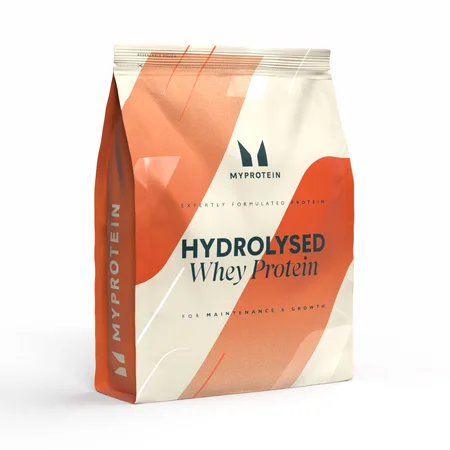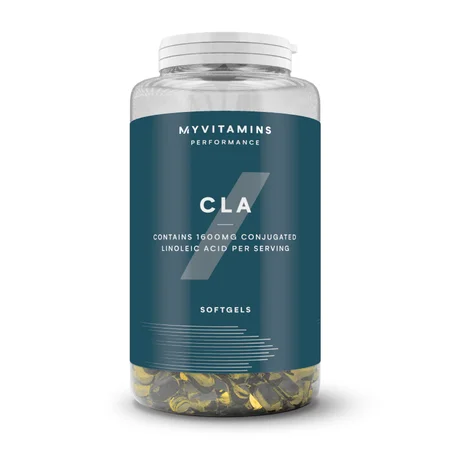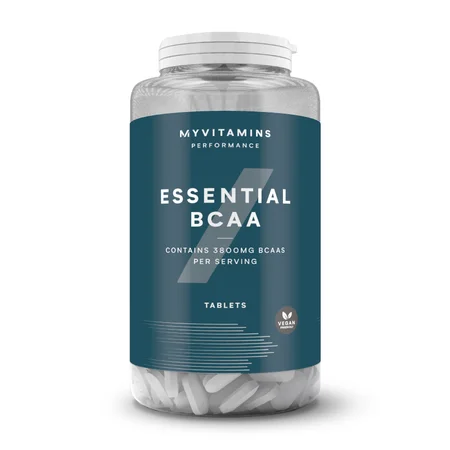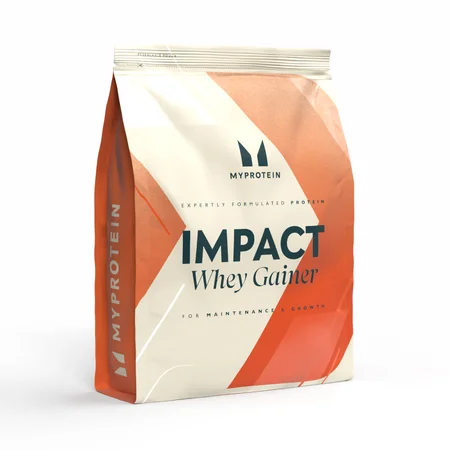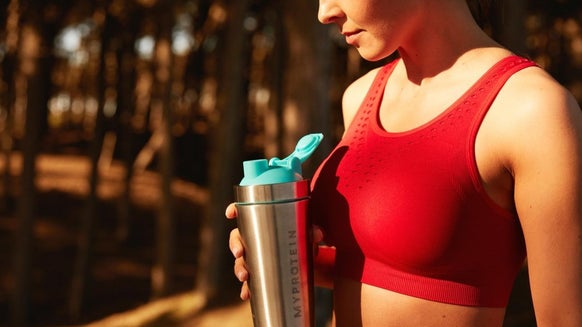What Is Whey Protein?
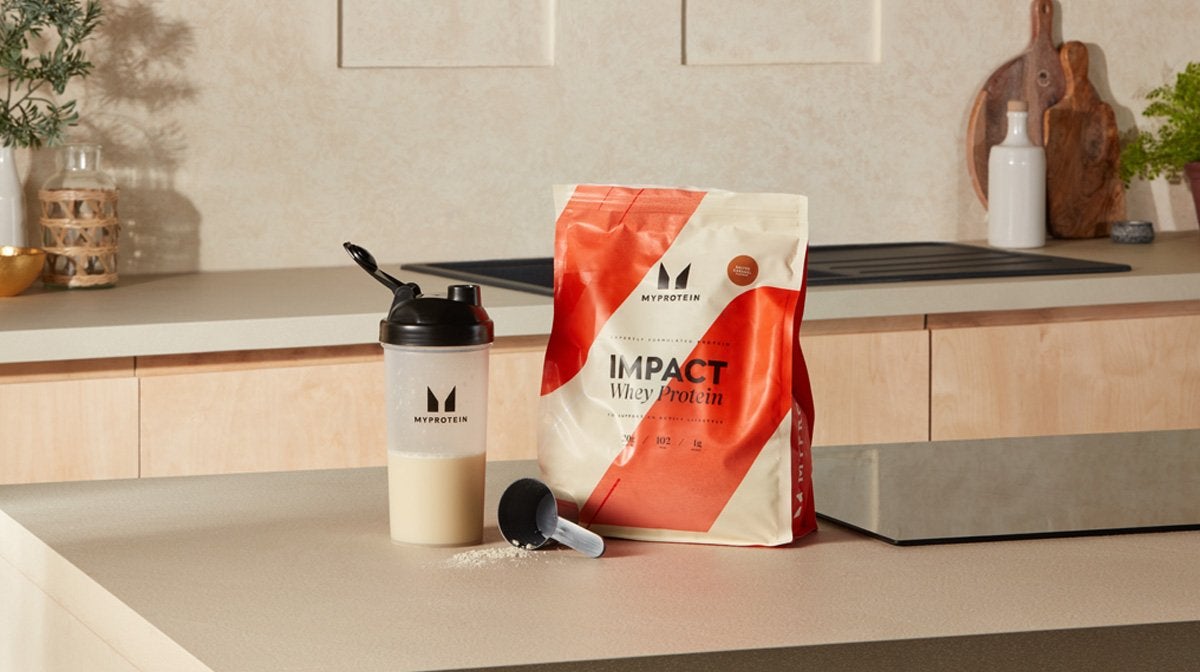
Some people think we talk about protein way too much…
But do you know what I say to them? You would too if you knew how great it is.
I’m a massive whey protein fan. I love it. In fact, I’d go so far to call it the one true superfood.
But enough singing its praises. I’m going to explain exactly why whey protein is such a nutrition powerhouse and why you should include it in your diet.
- What is whey protein?
- What does whey protein do for you?
- What is whey isolate?
- What’s in whey protein?
- How whey protein is made
- Is whey protein good for weight loss?
- Which whey protein is best?
- Is whey protein good for you?
- How much whey protein to take per day
- When to take whey protein
- Best whey protein flavours
What is whey protein?
Whey protein is a high-quality protein, meaning it’s rich in all of the essential amino acids (EAAs).
It is derived from whey, a byproduct of cheese production that was often discarded or used as animal feed until the 20th century.
In the 30s and 40s, scientists looked at whey a little closer, recognising its high-quality protein content and the presence of essential amino acids. This research laid the groundwork for its use as a dietary supplement.
In the 70s and 80s, the dairy industry worked out how to separate whey protein from liquid whey, allowing for production of whey protein concentrate and later isolate.
The fitness boom of the 80s and 90s saw an increased demand for high-protein supplements, particularly among bodybuilders and athletes wanting to boost their protein intake. Whey protein was a popular choice due to its low cost, convenience and effectiveness.1

What does whey protein do for you?
Whey protein is best known for its muscle-building properties, which makes it a popular supplement with athletes, fitness enthusiasts, bodybuilders and many more people who like to stay active.
These properties are primarily due to its high-quality protein content, rich amino acid profile, and rapid digestibility.2
Whey protein is considered a complete protein (ie a high-quality protein), meaning it contains all nine “essential” amino acids that the body cannot produce on its own. These amino acids are crucial for muscle protein synthesis (MPS), the process through which the body repairs and builds new muscle tissue.
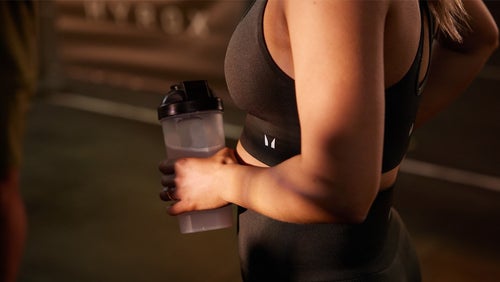
Essential Amino Acids | Everything You Need To Know
Find out more about this “essential” ingredient that makes protein so powerful.
Additionally, whey protein is particularly rich in branched-chain amino acids (BCAAs), including leucine, isoleucine and valine. Leucine, in particular, plays a critical role in initiating MPS, essentially activating the “on switch” to begin the process.
Another reason for whey’s popularity is its rapid digestibility. The body can quickly absorb and digest it, leading to a rapid increase in the amino acids levels in the bloodstream.
This quick spike in amino acid availability helps stimulate MPS more effectively than slower-digesting proteins (such as casein). Consuming whey protein soon after exercise may maximise the anabolic response and support muscle recovery and growth.3
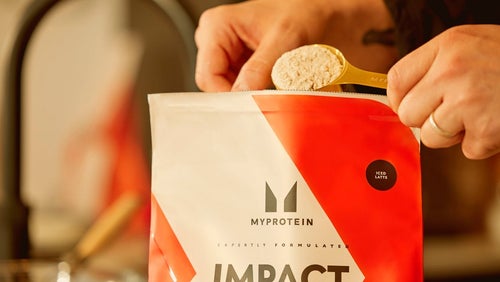
Whey Protein Timing | The Best Time To Take Protein Shakes
We reckon any time is a good time, but here's what the experts say.
Another important benefit to highlight is how whey protein supplementation may help preserve lean muscle mass in a weight loss phase. During periods of calorie restriction or weight loss, there's a risk of losing lean muscle mass. Whey protein helps preserve lean muscle mass by providing a high-quality protein source that supports muscle maintenance while promoting fat loss.4
There are many other potential benefits to whey protein supplementation, including reducing the impact of age-related muscle loss, preserving lean muscle mass when injured, and supporting weight loss.5
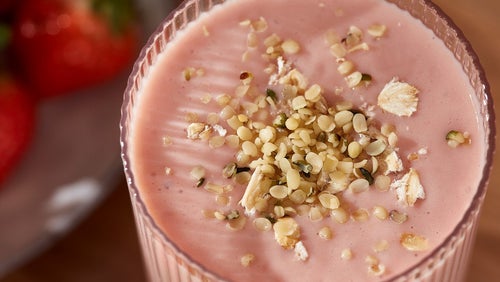
Protein Shakes For Weight Loss
Here's how to use protein shakes to your advantage.
What is whey isolate?
Whey protein isolate is a highly refined form of whey protein known for its high protein content and minimal amounts of fat and lactose. Typically, it is over 90% protein, whereas whey concentrate is more likely 70-80% protein. The difference is mostly down to its more extensive filtration, which removes a greater proportion of non-protein components, like fat and lactose. Because there is little to no lactose in the final product, it can be a suitable alternative for people with intolerance.

Best Whey Protein | The Difference Between Impact Whey & Impact Whey Isolate?
It's a battle of the best.
What’s in whey protein?
Whey is mostly protein but also contains varying amounts of fat, lactose, and other vitamins, minerals and nutrients, depending on its level of concentration.
How whey protein is made
The Myprotein factory runs like clockwork, all day, every day, handling several hundred tonnes of whey protein and producing thousands of products in a week. And we thought it was about time to let you in on the magic and let you know how your favourite protein powder is made.
Is whey protein good for weight loss?
Whey protein can be an incredibly useful tool for weight loss. Evidence shows that whey protein supplementation can promote satiety, which can help reduce overall calorie intake by making you feel fuller for longer periods.6
Of all the macronutrients, protein has the highest thermic effect. This means that the body spends more energy digesting it than it does on fats and carbohydrates.7

Which whey protein is best?
There are a variety of whey protein types and formulations, and it wouldn’t really be fair to say that one is the “best” in comparison to any other. It’s really down to your needs and goals
These are the three main forms of whey protein that you’ll likely come across:
Whey protein concentrate
This is made by removing some of the fat and lactose through filtration, leaving a product that contains about 70-80% protein by total weight.
Whey protein isolate
This type of protein undergoes further processing to remove almost all fat and lactose, resulting in a product that typically contains over 90%. It’s a purer form of whey protein with minimal non-protein components and is an option better suited for those with a lactose intolerance or dairy sensitivity.
Whey protein hydrolysate
A hydrolysate is produced by hydrolysing whey protein, which involves breaking it down into smaller peptide chains through enzymatic action. This pre-digested form of whey protein is absorbed more rapidly by the body and is often used by athletes who are looking to optimise their recovery post-workout.
Which whey protein is best for weight loss?
While many whey protein supplements can support weight loss efforts, it may be best to go for a product specifically designed for this goal. Impact Diet Whey is ideal, with 38g of protein per serving and additional ingredients like green tea and conjugated linoleic acid (CLA).
We know that protein can support satiety and preserve lean muscle mass but what about the other ingredients?
Well, green tea is rich in antioxidants, particularly catechins, which have been shown to boost metabolism and enhance fat oxidation, helping the body burn fat more efficiently.8
And CLA, a type of fatty acid found naturally in meat and dairy, is known for its ability to reduce body fat by influencing enzymes involved in fat storage and metabolism.9
Together, these ingredients complement the high protein content of whey, as not only do they aid in reducing overall body fat but also support metabolic health, making it easier to maintain weight loss over time. Additionally, the synergistic effect of these components can enhance energy levels, further supporting active lifestyles, performance and recovery.
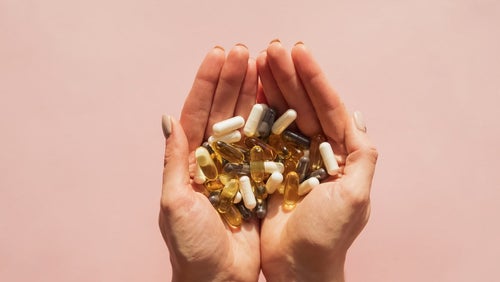
Top 5 Supplements For Weight Loss
These could help kickstart your weight-loss journey or bust a plateau.
Which whey protein is best for muscle growth?
Regular whey protein is an excellent quality protein source for muscle growth. But whey protein isolate, with its high protein purity, is ideal for someone looking to build lean muscle without putting on excess body fat.
Additionally, the rapid digestibility and absorption of whey isolate ensure that essential amino acids quickly reach the muscles, promoting efficient recovery and muscle protein synthesis post-workout.
It’s also worth highlighting that whey protein isolate is rich in branched-chain amino acids (BCAAs), particularly leucine, the most important of the essential amino acids for muscle growth.
Finally, its low lactose content makes it suitable for individuals with intolerance, providing a high-quality protein source with less chance digestive discomfort (which may also be beneficial in the presence of increased food intake).
Which whey protein is best for bulking?
While all forms of whey protein are useful for bulking, you may wish to consider going down to the route of practicality and investing in a formulation specifically designed for gaining lean muscle mass and overall size.
I’d recommend Impact Weight Gainer if these are your goals. It’s packed with a blend of high-quality, fast and slow digesting proteins, that helps grow and maintain important muscle while also providing a blend of both slow and quick-digesting carbohydrates making it a suitable option post-workout or even as a meal replacement during a busy workday.
For more mass building advice, check out our video on how to lean bulk.
Is whey protein good for you?
I may be biased but I’d say that whey protein is one of the very few true superfoods that we know of.
Given the diverse benefits it can have on health, body composition, and exercise performance and recovery, as well as its quality, cost-effectiveness and convenience, it’s hard to form an argument against including whey protein in your diet.
And there are also no downsides. The only group of people who may wish to be cautious about their it in their diet are those with kidney issues.

34 Delicious Whey Protein Recipes Absolutely Worth Trying
The whey to our hearts are great recipes...
How much whey protein to take per day
Here are some simple daily protein recommendations based on specific goals:
- Muscle Gain: 1.6 to 2.2 grams per kilogram of body weight
- Weight Loss: 1.2 to 1.6 grams per kilogram of body weight
- Athletic Performance: 1.2 to 2.2 grams per kilogram of body weight
- Older Adults: >1.2 grams per kilogram of body weight
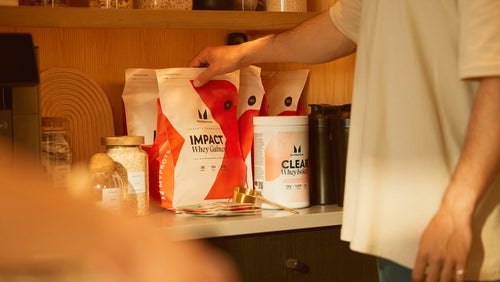
How Many Protein Shakes A Day is Healthy?
An experts advice on what you need, depending on your goals.
When to take whey protein
Of course there are the obvious situations when you may wish to take a serving of whey protein; post-exercise for one but there may also be some benefit in taking it pre-workout as well to provide a readily available source of amino acids, which may stimulate increased adaptations to training.1
However, you may wish to consider taking whey protein at other times of the day too.
For example, to promote satiety and further regulate blood glucose levels you might want to add a scoop to your morning porridge. Or, you may wish to have a serving before bed to provide you with the needed building blocks to recover after a hard day’s training.
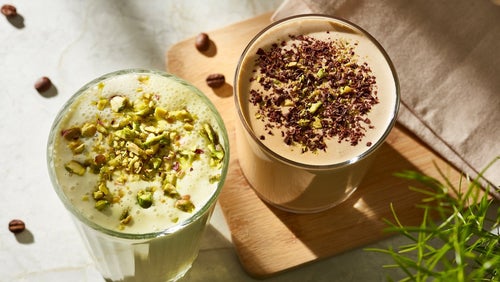
High Protein Shakes To Boost Your Daily Intake & How To Make Them
Your daily protein shake will never be boring again.
Best whey protein flavours
With over 40 flavours to choose from, making the right choice can feel daunting. That's why, with your help, we've pulled together a list of our best flavours, according to our community — so you can make an informed choice.
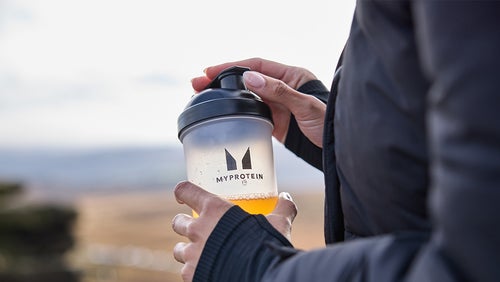
Myprotein's Best Whey Protein Flavours According To You
If you’ve ever found yourself in a protein-picking dilemma, a good place to start is what’s the most popular.
Take Home Message
For some reason many people think whey protein is just for bodybuilders and heavy-lifting gymgoers. But in actual fact, it’s actually a superfood that just about everyone could gain from.
Nutritious, cost-effective and convenient, it can bring all sorts of benefits for your fitness goals. So consider adding a couple of daily scoops to your diet and see how you get on. You may never look back.
FIND MORE HERE:
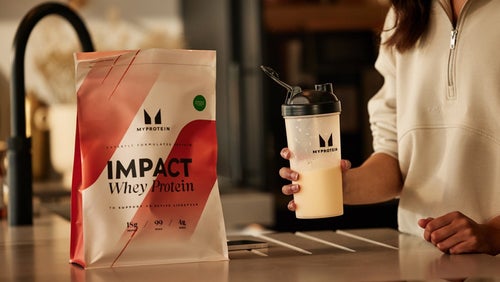
The Complete Guide To Protein Powders For Beginners
Match your protein to your training.

- Jäger, R., Kerksick, C.M., Campbell, B.I. et al. International Society of Sports Nutrition Position Stand: protein and exercise. J Int Soc Sports Nutr 14, 20 (2017). https://doi.org/10.1186/s12970-017-0177-8
- Ha E, Zemel MB. Functional properties of whey, whey components, and essential amino acids: mechanisms underlying health benefits for active people (review). J Nutr Biochem. 2003 May;14(5):251-8. doi: 10.1016/s0955-2863(03)00030-5. PMID: 12832028.
- Aragon AA, Schoenfeld BJ. Nutrient timing revisited: is there a post-exercise anabolic window? J Int Soc Sports Nutr. 2013 Jan 29;10(1):5. doi: 10.1186/1550-2783-10-5. PMID: 23360586; PMCID: PMC3577439.
- Cava E, Yeat NC, Mittendorfer B. Preserving Healthy Muscle during Weight Loss. Adv Nutr. 2017 May 15;8(3):511-519. doi: 10.3945/an.116.014506. PMID: 28507015; PMCID: PMC5421125.
- Pillai AT, Morya S, Kasankala LM. Emerging Trends in Bioavailability and Pharma-Nutraceutical Potential of Whey Bioactives. J Nutr Metab. 2024 Apr 10;2024:8455666. doi: 10.1155/2024/8455666. PMID: 38633607; PMCID: PMC11023716.
- Sepandi M, Samadi M, Shirvani H, Alimohamadi Y, Taghdir M, Goudarzi F, Akbarzadeh I. Effect of whey protein supplementation on weight and body composition indicators: A meta-analysis of randomized clinical trials. Clin Nutr ESPEN. 2022 Aug;50:74-83. doi: 10.1016/j.clnesp.2022.05.020. Epub 2022 Jun 6. PMID: 35871954.
- Pesta DH, Samuel VT. A high-protein diet for reducing body fat: mechanisms and possible caveats. Nutr Metab (Lond). 2014 Nov 19;11(1):53. doi: 10.1186/1743-7075-11-53. PMID: 25489333; PMCID: PMC4258944.
- Yang CS, Zhang J, Zhang L, Huang J, Wang Y. Mechanisms of body weight reduction and metabolic syndrome alleviation by tea. Mol Nutr Food Res. 2016 Jan;60(1):160-74. doi: 10.1002/mnfr.201500428. Epub 2015 Dec 9. PMID: 26577614; PMCID: PMC4991829.
- Kennedy A, Martinez K, Schmidt S, Mandrup S, LaPoint K, McIntosh M. Antiobesity mechanisms of action of conjugated linoleic acid. J Nutr Biochem. 2010 Mar;21(3):171-9. doi: 10.1016/j.jnutbio.2009.08.003. Epub 2009 Dec 1. PMID: 19954947; PMCID: PMC2826589.


